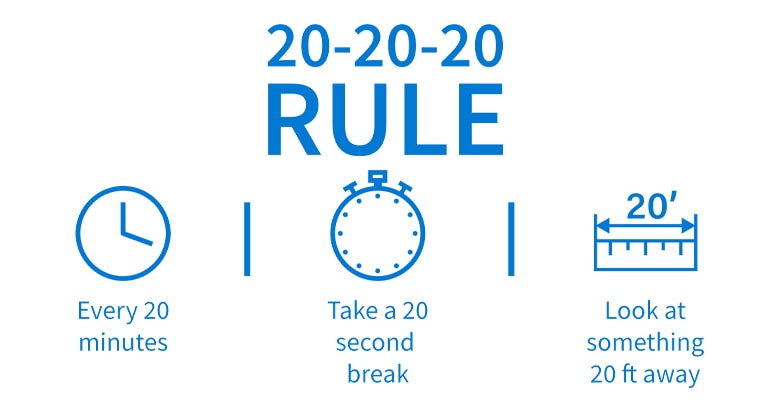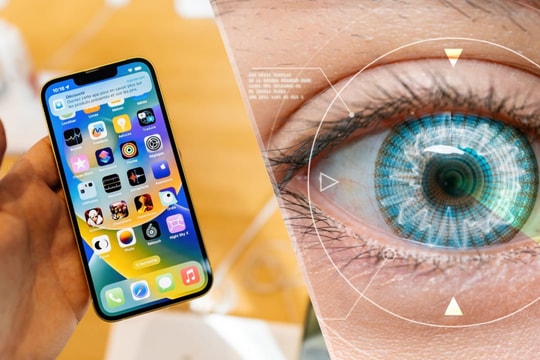10 tips to help protect your eyes from damage
Our eyes are exposed to countless potential dangers every day, from blue light from screens, environmental dust, to unhealthy living habits. Taking care of your eyes not only helps improve your vision but also contributes to protecting your overall health.
Summer brings bright sunshine and long, energetic days, but also brings with it higher levels of ultraviolet (UV) rays than any other time of year. While many people have developed the habit of applying sunscreen to protect their skin, the eyes – one of the most sensitive parts of the body – are often neglected.
We only have one pair of eyes to accompany us for the rest of our lives, but taking care of them is not given the importance it deserves. From constant exposure to harsh sunlight to excessive use of electronic devices, our eyes are constantly under threat.

However, with just a few simple changes, you can completely protect and maintain healthy eyesight throughout the summer and beyond.
1. Wear sunglasses:Simple but effective shield for summer eyes
Ultraviolet rays not only harm the skin but also silently damage the eyes if exposed for a long time.
According to the American Academy of Ophthalmology, wearing sunglasses can block harmful UV rays, thereby reducing the risk of serious diseases such as cataracts, corneal sunburn, and even eye cancer and tumors around the eyes.
In particular, polarized glasses with smoke or gray lenses not only increase the effectiveness of filtering sunlight but also significantly reduce glare, an ideal choice to protect eyesight under the harsh summer sun.
2. Apply the 20-20-20 rule to protect your eyes from digital strain
Spending too much time in front of a screen, whether it’s a computer, phone, or TV, can lead to dry eyes, eye strain, headaches, blurred vision, and neck and shoulder pain. These are typical symptoms of computer vision syndrome, which is becoming increasingly common in the digital age.

Photo: Internet
To prevent this, the American Optometric Association recommends the 20-20-20 rule, which means that for every 20 minutes of screen time, take 20 seconds to look at an object at least 20 feet away. This simple habit helps your eyes rest properly, reduces strain, and improves long-term vision health.
3. Don't forget to rest your eyes even when reading
It's not just digital screens that can strain your eyes, reading for long periods of time, especially at close range, can also affect your vision.
When you keep your eyes focused on a near distance continuously, the risk of developing myopia increases, which causes distant vision to become blurry while nearby objects remain clear. Just like when using electronic devices, you should apply the 20-20-20 rule when reading to help your eyes adjust and relax.
4. Increase physical activity: The Key to Healthy Eyes
Not only good for the heart and weight, regular physical exercise also brings practical benefits for eye health.
According to the American Academy of Ophthalmology, exercise improves blood circulation, promotes vascular health, and helps reduce the risk of serious eye conditions such as glaucoma and diabetic retinopathy.
The US Centers for Disease Control and Prevention (CDC) recommends that everyone should do at least 150 minutes of moderate-intensity aerobic activity each week, combined with two sessions of strength training to support muscles.
Additionally, if your job requires you to sit in front of a computer for long periods of time, add simple eye exercises to reduce eye strain and muscle tension around the eyes.
5. Spend more time outdoors:Benefits for both eyes and body
Even though they exercise indoors, children and adults should still spend time outside every day.
Studies show that exposure to natural light reduces the risk of developing myopia in children and adolescents, and improves mental and physical health for all ages.
Simple activities like taking your kids to the park, going for a walk or playing in the backyard all have obvious benefits. Don’t forget to protect your eyes with sunglasses to avoid harmful UV rays when outdoors.
6. Quit smoking:Important steps to protect your eyes
The harmful effects of tobacco on the lungs and heart are obvious, but few people know that it is also a "silent enemy" of the eyes.
According to the US Food and Drug Administration (FDA), smoking significantly increases the risk of serious eye diseases such as cataracts and age-related macular degeneration (AMD).
Smokers are 2–3 times more likely to develop cataracts and 4 times more likely to develop AMD than non-smokers. Research is also showing a link between smoking and other eye diseases. It’s time to make a plan to quit smoking to protect your overall health, including your vision.
7. Proper nutrition:The foundation for healthy, bright eyes
Daily diet plays an important role in protecting and maintaining eyesight.
According to the American Academy of Ophthalmology, adequate supplementation of micronutrients such as vitamins A, C, E, beta-carotene, omega-3, lutein, zeaxanthin and zinc can support eye cell regeneration, reduce inflammation and fight free radicals that damage the retina.
You can easily incorporate these nutrients into your diet through nutrient-rich foods such as carrots, mangoes, sweet potatoes, and cheese, which are rich in vitamin A; oranges, lemons, and strawberries, which provide vitamin C; avocados, almonds, and sunflower seeds, which provide vitamin E; salmon, tuna, and sardines, which are rich in omega-3s; kale, spinach, and eggs, which contain lutein and zeaxanthin; and zinc, which can be found in lean red meat, beans, and oysters. A balanced diet is not only good for your body, but also the key to healthy eyes over time.
8. Rubbing eyes:Seemingly harmless but risky habits
Rubbing your eyes is a common reflex when your eyes are dry, tired or itchy, but this habit poses many risks to your eyesight. Rubbing your eyes too hard or too often can damage the cornea, reduce vision, cause blurred vision, headaches, and even lead to inflammation and increased sensitivity to light.
In addition, hands are home to many bacteria and viruses; when you rub your eyes, you can accidentally introduce pathogens into your body, causing conjunctivitis (also known as pink eye).

Instead of rubbing your eyes, use saline or preservative-free eye drops to soothe and moisturize your eyes. If you have trouble breaking the habit, find ways to distract your hands, such as holding a small object or doing some relaxing exercises, to keep your eyes safe.
9. Wash your handsBefore touching your eyes: Small actions to help protect your eyes and overall health
Always wash your hands before touching your face, eyes, or handling contact lenses. With about 45 million Americans wearing contact lenses, one in three people experience complications, many of which can result in serious corneal damage.
Hands are a potential reservoir for a variety of bacteria and viruses from surfaces you touch every day. According to the CDC, washing your hands frequently not only protects your eyes, but can also reduce your risk of respiratory illness by up to 20% and your risk of diarrhea by up to 30%. A simple action with a powerful effect.
10. Eye makeup remover: Important steps to protect eyesight
After a long, busy day, removing eye makeup can be overlooked, but it's an essential habit for maintaining eye health.
According to the Optometrists Network, an online organization that provides information, resources, and support related to eye health and vision, removing makeup before going to bed helps reduce the risk of blepharitis, blepharitis, and other eye irritation problems.
In addition, you should also practice safe makeup habits, which means only using products specifically for the eye area, changing makeup regularly, especially after having had an eye infection, not applying makeup to the inner eyelids, and absolutely not sharing products with others.
Also, don't forget to clean your makeup brushes and sponges regularly to prevent bacteria buildup. A few minutes of extra care each night can make a big difference in the long run for both your skin and your vision.






